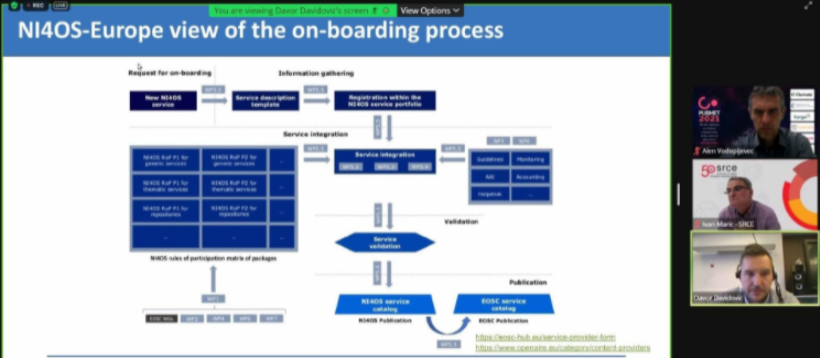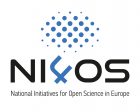The conference gathered together more than 600 participants from more than 50 countries.

The 8th Conference on Scholarly Communication and Publishing in the Context of Open Science, Pubmet2021, was held online from 15-17 September 2021. The conference was organized by the University of Zadar, University of Zagreb, Ruđer Bošković Institute and the Croatian Association for Scholarly Communication, under the auspices of the Croatian Ministry of Science and Education, OpenAire, NI4OS-Europe, Sparc Europe and EASE.
The pre-conference day was dedicated to workshops, with the first one covering scientific communication and how science is represented in the media, followed by an introduction on some basic concepts of statistics to non-mathematicians and the reference management tool Zotero. The first conference day was dedicated to Open Science, Open Communication, new and innovative ways of publishing and quality assessment in the scientific community.
NI4OS-Europe team participated in the session “Supporting Open Communication”. Biljana Kosanović (Univ Belgade, SRB) and Milica Ševkušić (SASA, SRB) presented the developments on the implementation of institutional repositories in Serbia after the OA mandate was implemented in 2018. Even without dedicated financial support from public funders almost three years later, there are around 40 repositories and their content goes beyond the policy requirements. Ivan Marić, Director / CEO of SRCE, presented chronological development of Croatian Open Science infrastructure and pan European projects with emphasis given on the Croatian Open Science Cloud Initiative and the recently signed Memorandum of understanding (MoU) that marked the beginning of its activities. The MoU was signed by the 18 project partners, including two Croatian NI4OS-Europe partners, SRCE and RBI. In order to fulfil the tasks of the projects Council of the HR-OOZ Initiative, two working groups were formed: a working group for drafting proposals of the National plan and policies for Open Science and a working group for defining the structure and principles of HR-OOZ. The further development of HR-OOZ as a part of Croatian CRIS infrastructure will enable the inclusion of Croatian services, resources and research data in the European Open Science Cloud (EOSC). Davor Davidović (RBI) explained the onboarding process by using as example a bioinformatics Web server REVIGO while Andreja Stojić (IP, SRB) presented Atlas platform, an artificial intelligence project that uses an evidence based model for air pollution research.
Manuscripts change during the peer-review process, therefore there are minor or major differences between pre-printed or submitted versions and published versions of manuscript. Mario Malički (Stanford, USA) showed different stages of research paper by summarizing the results of 21 studies that analysed manuscript changes. Charlotte Wien (SDU, DK) addressed standard bibliometric measures and quantitative indicators, and exemplified that a much fairer assessment can be enhanced through a negotiated research strategy. The presentations were followed by discussion between panelists on redefining research assessment in order to achieve quality criteria for career advancement of researchers and research quality of universities.
The last day of the conference was dedicated to the hot topic of Trust in Science, (In)equalities in scholarly communication. The conference ended with Scholarly communication in times of COVID-19. Alexandra Freeman (Univ Camb, UK) presented data that was collected from 10 countries around the world during the early months of the pandemic, which initiated vivid discussion among panelists. The discussion emphasized the importance of communication of Science to the general public.
Links:
